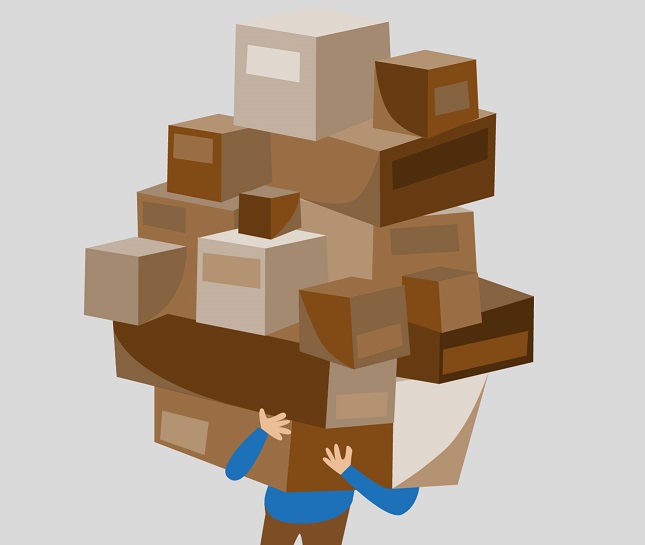International Shipping: Will It Work for You?

When it comes to offering greater levels of customer service while expanding your brand reach, you and your team are constantly conceptualizing strategies.
And if you’re a small or new retailer, then there’s one way that you can hit your benchmarks that the big guys use regularly:
You can start offering international shipping to your online customers.
There are several reasons why offering international shipping is the best thing for your company, but there are also realistic considerations to consider before you make the leap into promoting your online store as a global brand.
It’s important for you to perform a bit of a feasibility test, and it’s crucial for you to consider the setbacks you’ll inevitably face. But first, let’s take a look at some of the reasons why you should implement international shipping at soon as you determine it’s possible:
Your Customers are Asking for It
The thing about launching an e-commerce retail site is that it automatically allows potential customers from around the world to find you and learn more about your brand. Even if you’re a small mom and pop operation based in the smallest corner of your state, your online store can position you to gain shoppers from the furthest corners of the earth.
That said, many of your prime customers might live in some of those far-flung corners, and they’d love to be able to receive the comforts of home from an online retailer such as yours.
Examples of these type of shoppers include active-duty military members (and their families), military Veterans who have re-settled overseas, and traveling expats.
Generate New Revenue Streams
Again, one of the most awesome things about launching an e-retail store lies in its ability to introduce your products to new shoppers. And make no mistake-there are international shoppers who are willing to pay freight charges to be able to receive unique products from your store.
Products that your local consumers might consider to be typical might be perceived as unique to overseas shoppers. Also, keep in mind that consumers around the world are familiar with the workmanship and the pride that American manufactures take in their products.
What Could Go Wrong?
If it seems as if shipping your products internationally should be a no-brainer at this point, then proceed with caution!
There are plenty of booby-traps that could turn you company’s dreams of shipping internationally into a nightmare!
Let’s flip the coin and discuss your potential international shipping pitfalls:
1. Lost Orders
Imagine building up your shopper’s anticipation levels as they very patiently wait for their U.S. sourced product to finally arrive…only to realize that they’re never going to receive their product.
Beyond their obvious disappointment, they’ll feel cheated and angry because they’ve spent their funds on a product they never received, no matter what the reason is. Furthermore, they’ll hold your company responsible, even if you did everything possible during the fulfillment and delivery process.
The product might have become lost (or stolen) after it left the U.S., but your company’s name will leave a sour taste in your customer’s mouth when all is considered. Do you really want to generate bad P.R. on an international scale?
2. Damaged Orders
Even if the ordered products left your fulfillment facility in pristine condition, it could still become damaged during the overseas shipping process.
A box cutter could rip through boxes, slashing through the products inside. Rodents could gnaw through boxes, allowing bugs to also enter the package. Delicate products like food, beverages, or oils could become spoiled or rancid. And wet or humid conditions could cause some materials to develop mold or mildew, requiring you to throw the product away.
And of course, careless handling of the product while it’s in transit could cause it to crack or shatter into useless pieces.
3. Wasted and Lost Funds
If any of the outcomes mentioned (and others) take place, then you’re facing lost funds with no recourse.
First, your customers will ask you for a full refund, and they’ll have every right to do so. Second, you’ll spend potential revenue on refunds, and that’s not to mention money that was wasted on the product that became ruined or never made it to its final destination.
Damaged, lost, or stolen customer items remove products from your inventory, failing to provide you with a return on its investment!
Ways to Make International Shipping Work
While there’s a bevy of considerations to take into account before you start offering international shipping, there’s steps you can take to protect yourself.
For example, you can be mindful of where you ship your products to. The Oatmeal Shop states their policy regarding countries they no longer ship to:
We no longer ship to India, Argentina, Morocco, or Mexico. We found that most of the orders sent there would never arrive at their destination. Needless to say, this was very frustrating for our customers and we had no control over actually getting the product to them. We find that people are happier not being able to order, rather than ordering and never receiving their products.
And eBay reseller Charlene Anderson says of her international shipping policy:
I will ship anywhere I can insure my package, says Charlene. (But) right now, I don’t ship to Brazil, as there are too many issues with customs delays, and I can’t get insurance for Croatia (and a few other countries), so I don’t ship there…
…Other types of products, such as leather, shoes and clocks, you can’t sell to Italy, for example.
The USPS has provided a comprehensive international shipping guide for small entities, for your convenience. And UPS also provides educational resources-for example, did you know that it’s against the law in Vietnam to ship calendars for commercial use?
International shipping requires more than simply packaging your customer’s products, then hoping for the best. But when implemented correctly, the benefits could create all sorts of new possibilities for your company.





